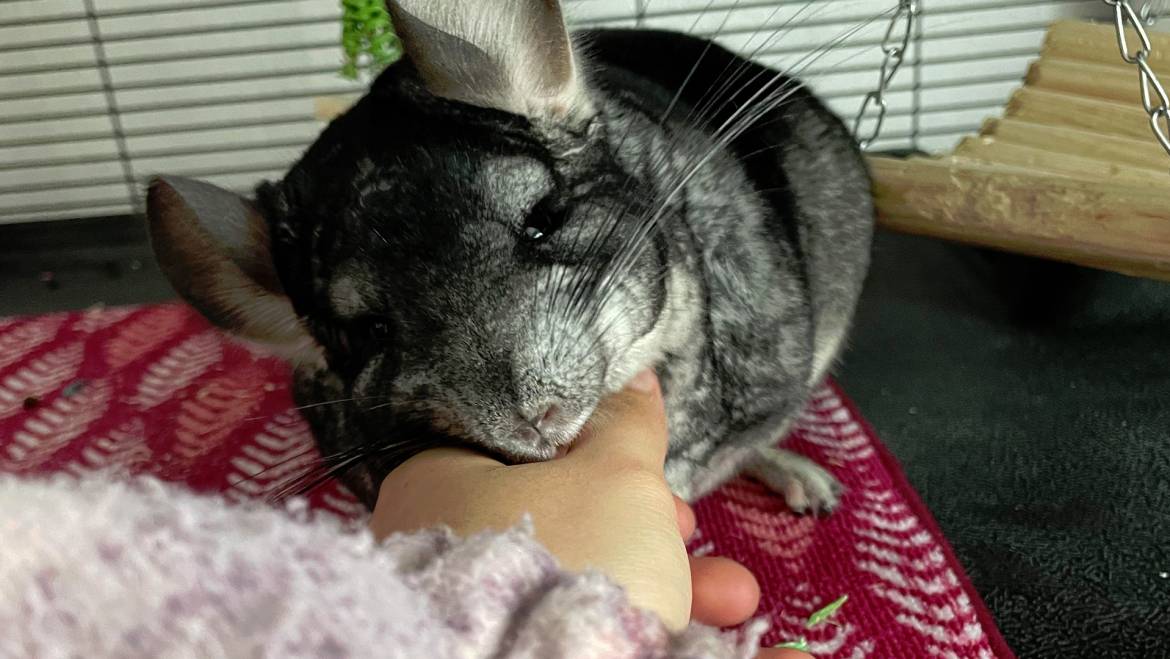Chinchillas, like any other animal, have their own set of emotional needs. These small and furry creatures are known for their playful nature, but sometimes they can exhibit signs of emotional distress. As a chinchilla owner, it is important to be able to identify and address any emotional issues that your pet may be experiencing. In this article, we will discuss some of the most common emotional issues that chinchillas can face and how to help them heal.
Stress and Anxiety in Chinchillas
Stress and anxiety are common emotional issues in chinchillas. These can be caused by a number of factors, such as loud noises, changes in routine, and overcrowded living conditions. Signs of stress and anxiety in chinchillas include teeth grinding, hiding, excessive grooming, and loss of appetite.
One way to reduce stress in chinchillas is to provide a safe and comfortable environment. Chinchillas require a clean and spacious living space with plenty of hiding places and things to climb on. It is also important to maintain a consistent routine for feeding and handling your chinchilla.
Another way to reduce stress in chinchillas is to provide them with mental stimulation. Chinchillas are active and curious animals, so it is important to provide them with toys and activities that keep them occupied. These can include chew toys, wooden blocks, and exercise wheels.
Loneliness and Boredom in Chinchillas
Chinchillas are social animals and require social interaction. Loneliness and boredom can lead to depression and other emotional issues in chinchillas. Signs of loneliness and boredom in chinchillas include loss of appetite, lethargy, and excessive sleeping.
One way to combat loneliness and boredom in chinchillas is to provide them with a companion. Chinchillas should always be kept in same-sex pairs or groups to prevent fighting. It is important to introduce chinchillas slowly and carefully to prevent any territorial issues.
If getting a companion for your chinchilla is not an option, it is important to spend time interacting with your pet every day. This can include playing with them, talking to them, and offering them treats. It is also important to provide them with plenty of toys and activities to keep them mentally stimulated.
Depression in Chinchillas
Depression is a serious emotional issue that can affect chinchillas. Depression can be caused by a number of factors, such as loneliness, boredom, illness, and stress. Signs of depression in chinchillas include loss of appetite, lethargy, and lack of interest in toys and activities.
If you suspect that your chinchilla is depressed, it is important to consult with a veterinarian. A veterinarian can rule out any underlying health issues and provide treatment options for depression.
In addition to veterinary care, there are other things you can do to help your chinchilla recover from depression. Providing a comfortable and stimulating environment is important. Make sure your chinchilla has a clean and spacious living space with plenty of toys and activities. It is also important to spend time with your chinchilla every day, playing with them, talking to them, and offering them treats.
If your chinchilla is depressed due to loneliness, consider getting them a companion. If you already have multiple chinchillas, make sure they are getting along and not fighting. Introduce new chinchillas slowly and carefully to prevent territorial issues.
Grief and Loss in Chinchillas
Chinchillas can also experience grief and loss, especially if they lose a companion. Signs of grief in chinchillas include loss of appetite, lethargy, and excessive sleeping. It is important to give your chinchilla time to grieve and adjust to the loss of their companion.
If you have lost a chinchilla companion and your remaining chinchilla seems to be struggling with grief, there are some things you can do to help them. Spend more time interacting with your chinchilla, offering them treats and affection. Provide them with new toys and activities to help distract them from their grief.
If your chinchilla is struggling with grief and loss, it is important to give them time to heal. It may take some time for them to adjust to their new situation, but with patience and care, they can recover and regain their happy and playful nature.
Chinchillas, like any other animal, have their own emotional needs. It is important for chinchilla owners to be aware of these needs and address any emotional issues that may arise. Stress, anxiety, loneliness, boredom, depression, and grief are all common emotional issues in chinchillas. By providing a safe, comfortable, and stimulating environment, spending time with your chinchilla, and addressing any underlying health issues, you can help your chinchilla heal and maintain their emotional well-being.







